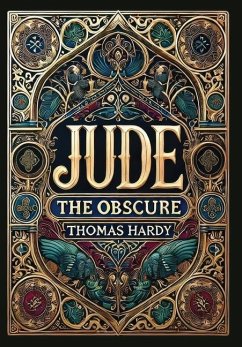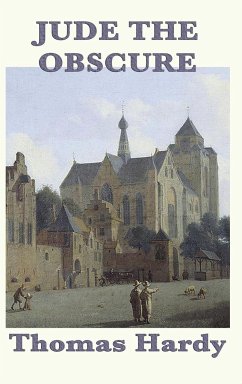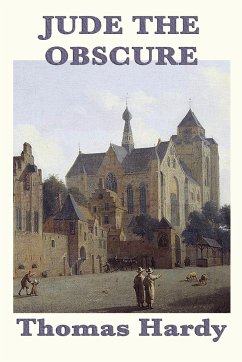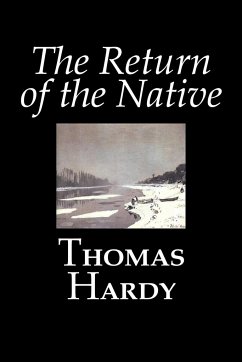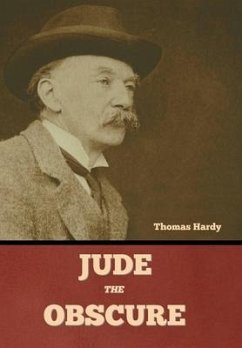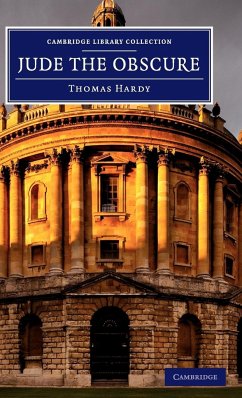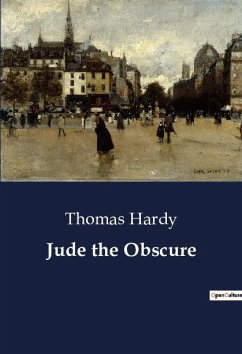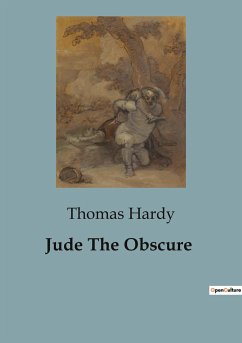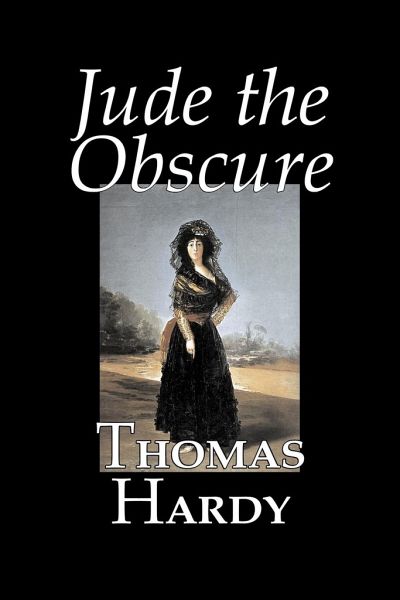
Thomas Hardy
Broschiertes Buch
Jude the Obscure by Thomas Hardy, Fiction, Classics
Versandkostenfrei!
Versandfertig in 1-2 Wochen

PAYBACK Punkte
11 °P sammeln!




There's a tale that goes around even now regarding Thomas Hardy -- that is, that the reaction of readers to one of his novels was so intense -- and so disturbing! -- that he swore off novels and spent the rest of his life committing poetry. Well, the story is true, the way it happens and this is the book responsible: Jude the Obscure.
Thomas Hardy (1840 - 1928) was an English novelist and poet. A Victorian realist in the tradition of George Eliot, he was influenced both in his novels and in his poetry by Romanticism, especially William Wordsworth. He was highly critical of much in Victorian society, though Hardy focused more on a declining rural society. While Hardy wrote poetry throughout his life and regarded himself primarily as a poet, his first collection was not published until 1898. Initially, therefore, he gained fame as the author of such novels as Far from the Madding Crowd (1874), The Mayor of Casterbridge (1886), Tess of the d'Urbervilles (1891), and Jude the Obscure (1895). During his lifetime, Hardy's poetry was acclaimed by younger poets (particularly the Georgians) who viewed him as a mentor. After his death his poems were lauded by Ezra Pound, W. H. Auden and Philip Larkin. Many of his novels concern tragic characters struggling against their passions and social circumstances and they are often set in the semi-fictional region of Wessex; initially based on the medieval Anglo-Saxon kingdom, Hardy's Wessex eventually came to include the counties of Dorset, Wiltshire, Somerset, Devon, Hampshire and much of Berkshire, in southwest and south central England. He destroyed the manuscript of his first, unplaced novel, but -- encouraged by mentor and friend George Meredith -- tried again. His important work took place in an area of southern England he called Wessex, named after the English kingdom that existed before the Norman Conquest.
Produktdetails
- Verlag: Aegypan
- Seitenzahl: 348
- Erscheinungstermin: 1. Februar 2007
- Englisch
- Abmessung: 229mm x 152mm x 21mm
- Gewicht: 565g
- ISBN-13: 9781603120678
- ISBN-10: 160312067X
- Artikelnr.: 22755873
Herstellerkennzeichnung
Libri GmbH
Europaallee 1
36244 Bad Hersfeld
gpsr@libri.de
Für dieses Produkt wurde noch keine Bewertung abgegeben. Wir würden uns sehr freuen, wenn du die erste Bewertung schreibst!
Eine Bewertung schreiben
Eine Bewertung schreiben
Andere Kunden interessierten sich für


